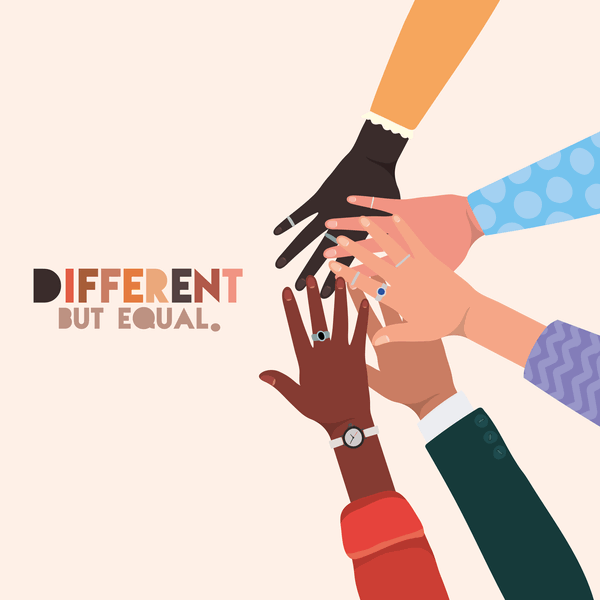A quota is defined as a fixed maximum or minimum limit of a specific group of persons permitted to do a particular thing, in literal terms. For instance, it may be the number of immigrants allowed to enter into a specific country or the limit a company can hire a specific gender.

On the other hand, workplace diversity is a management practice that includes individuals from different ethnic or social backgrounds, varying sexual orientations, genders, and more.
Often, organizations quantify diversity quotas into a statistical figure. Usually, these numbers are utilized to demonstrate equal representation for gender, race, or other variations. The last few decades have been more open to diversity compared with others. Most firms have even embraced holidays celebrated by a specific group of people. To see this, check out this post and browse through the Internet to find other companies that also invest in similar policies.
Are Diversity Quotas Useful?
Diversity quotas maintain a good statistical balance of unique individuals in the work area. Establishments that fully utilize this practice enjoy an innovative and exciting workforce. Such companies can also witness improved employee engagement, bringing about increased productivity and profitability. Besides these few mentioned advantages, there are many other benefits that organizations could enjoy if they utilized diversity ratios in the hiring process.
Most governments have set policies for the fair representation of different individuals. These guidelines require enterprises to maintain a certain percentage of unique persons in the workplace.

Some of the reasons every establishment should maintain ratios for equal representation include:
- They Allow Recruiters A Significant Number Of Qualified Candidates
Diversity quotas allow qualified individuals an unbiased opportunity to compete for certain positions in workplaces. This factor provides an organization a wider range of candidates to choose from. It’s then possible to attract exceptional candidates during the hiring process. As a result, organizations could benefit largely from having a superior workforce. This is because they may enjoy improved productivity, decision-making, profitability, and others.
- They Ensure Equality At The Workplace
Diversity ratios may be the best way to deal with discrimination in the work area. The role of inclusion in organizations is indisputable. Therefore, quotas encourage employees of different races, cultures, and genders to battle for various company positions. This factor ensures that each person is given an equal opportunity to showcase abilities and win or lose fairly. The firm can then easily adjust or fill an existing racial, cultural, or gender gap.
- Improved Reputation
Attaining the required diversity quotas, depending on your country, will boost your company’s image. You become a better employer than your competitors who don’t utilize diversity ratios in their processes.
Today, companies that achieve a higher rate of fair representation are applauded and awarded by specific bodies or their specific states. In addition, a government that pushes for diversity quotas also becomes recognized as a greater country.
- Increased Opportunities For Trade
A government is more likely to prosper if it gives fair chances to all people and emphasizes diversity ratios in all workstations. It’s because other countries will be ready to strengthen ties with it and sign trade unions.
Companies that encourage equality will be more likely to flourish, as well. This is because more potential investors will agree to do business with the firms. After all, they feel better valued.
Additionally, a broader set of experiences and skills in the workplace enables an enterprise to achieve a higher global reach. This means that it can serve a more significant number of clients because it can better understand and relate to them.
- Increased Productivity At Work
It’s never enough to research online about persons with disabilities, different cultures, races, genders, or sexual orientations. Having the first-hand experience is always much better. To achieve this, have a sit-down with your diverse workforce and ask them about their backgrounds, cultural practices, preferences, and others. You can hold such a session during work breaks. Encourage the team to build efficient personal relationships with one another in such meetings. This factor will help foster trust and unity amongst themselves.
Employees who relate better will be more motivated and ready to contribute more to their work. As a result, productivity is enhanced, and employee turnover is lowered. Additionally, the organization is more likely to achieve its set goals and objectives.
- A Wider Range Of Perspectives In Decision-Making
Diversity quotas will encourage a wider variety of perspectives in times of strategy-making. Different experiences and skills often influence how people make decisions. Therefore, when an establishment looks to improve policies or comes up with business plans, it’s guaranteed a more significant number of workable solutions.
Additionally, creativity is enhanced as people have different ways of viewing one particular thing. Therefore, this provides a larger pool of fresh ideas that could be better solutions than when you only see one issue in the same way. It has also been mentioned that diverse teams resolve issues speedily compared with cognitively alike individuals. It’s also due to the fact that they all have different beliefs, attitudes, and backgrounds. When various efficient opinions are brought forward, it’s usually easy to choose the most brilliant solution faster. Therefore, problems can be solved sooner, and management can evaluate results within a reasonable time.
Many unique ideas will also encourage innovations. If these different opinions are combined, it’s easy to develop solutions that could be new to the market. This factor could be beneficial as the organization could stand out amongst competitors and increase profitability at the same time.
Conclusion
Diversity quotas are highly advantageous and should be encouraged in all establishments. Organizations that have embraced it enjoy significant gains in their everyday processes. One advantage of investing in a blend of employees within the workforce is achieving higher productivity. Also, you get a wider range of perspectives in decision-making. This could greatly help to boost creativity and innovations and to ensure that challenges are resolved faster.
Another benefit is that the recruitment team will have a considerable number of qualified candidates for a specific position. Additionally, a country or company that pushes for diversity ratios could have a better reputation and will more likely be preferred by investors in trade unions. Lastly, equality is promoted if an establishment invests in inclusivity and diversity ratios. When there are no biases, all employees can fairly compete for a higher position in the workplace. As a result, the organization can attain or adjust the present diversity gaps.
